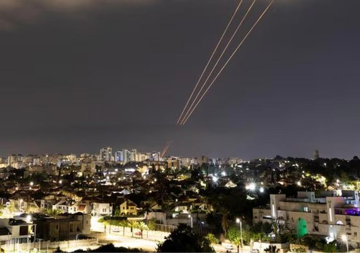Nearly 20 million people in Africa and the Arab peninsula face starvation as famine looms in Nigeria, South Sudan, Somalia, and Yemen. Another 10 million people will be threatened by famine if the international community fails to take prompt action. Taking note of the grave humanitarian crisis that is unfolding in Africa and the Arab Peninsula, Observer Research Foundation, in collaboration with the Department for International Development organised a round table discussion on “World Famine Crisis: What Should be Our Response” on 8 June 2017 to get a deeper insight into the main causes of famines and identify the ways in which India and other G20 countries can respond to the crisis.
Discussion started with a small introduction on the subject by Dr. Vikrom Mathur. Dr Mathur expressed concern over the fact that despite India’s close relations with Africa, the famines have been covered very poorly by the Indian media. Thereafter, Ms. Tamar Bello, Head, Global Partnerships Team, DFID India, highlighted the need for collective action to address the humanitarian challenge because a crisis like this cannot be tackled bilaterally. This was followed by a presentation by Dr Malancha Chakrabarty. She emphasised on the role of conflict in famines.
According to Dr. Malancha Chakrabarty, conflict is the main reason behind the collapse in agricultural production and food supply networks. In northeastern Nigeria, the insurgency by Boko Haram has displaced millions of people. Similarly, the conflict between Al Shabab and the government in Somalia has led to large scale displacement and spread of infectious diseases like cholera, measles, and diarrhea. In South Sudan, people have lost their livestock, farming tools, and the food supply from Uganda has been rendered dysfunctional due to the long standing dispute between political leaders which has led to a violent ethnic conflict. Yemen presents the worst case scenario. An estimated 17 million people in Yemen are suffering from ‘emergency’ levels of food insecurity. The famine in Yemen is the direct consequence of the conflict between Houthi rebel and forces loyal to the Saudi backed President Abdrabbuh Mansour Hadi.
Conflict is also inhibiting the ability of international agencies to help affected populations because transporting big amounts of humanitarian supplies to remote areas is proving to be a major challenge. African countries (Somalia and South Sudan) are suffering from extreme drought conditions due to successive poor rains and climate change. Most of the affected countries have very limited ability to cope with the multiple challenges of climate induced droughts and poor agricultural production due to poor governance.
In the discussion that followed, most of the participants reiterated the importance for the international community to play a positive role in peace building in each of these countries. Mr. Rick Rowden, a noted expert on Africa, also expressed his anguish over the role of developed countries such as the United States in exacerbating the war in Yemen by sale of arms.
Dr. Archana Sarkar, Advisor, Food and Nutrition Security at Deutsche Gesellschaft für Internationale Zusammenarbeit (GIZ), cautioned that simply providing emergency relief to famine affected countries will not be effective because famine has long term negative impacts. She emphasised on long term agricultural support and the need for building resilience of the poor households in the affected countries. Ms. Suruchi Bhadwal, Distinguished Fellow, The Energy and Resources Institute (TERI), drew attention to the lack of institutional framework in the affected countries which could be leveraged to provide assistance in the form of livelihood support or improving agricultural production and emphasised on the need for institution building and capacity building in these vulnerable countries. Ms. Ruchita Beri, Senior Research Associate, Institute for Defence Studies and Analyses, pointed out that humanitarian assistance is part of India’s partnership with Africa. For instance, in 2011, India provided humanitarian aid to Somalia through multilateral agencies.
Mr. Nitya Nanda, Senior Fellow, TERI, highlighted the role of safety nets such as the public distribution system and Food for Work programmes such as the National Rural Employment Guarantee Scheme in addressing India’s hunger challenge. According to him, the fundamental problem with Africa is that unlike India, it lacks a public distribution system and safety nets. Moreover, agriculture in Africa is very underdeveloped and growth in recent years has largely been commodity led. Prof CSC Shekhar, Professor Institute for Economic Growth, Delhi University, suggested the formation of a regional grain reserve for Africa which can be accessed in times of emergency. Dr. Suresh Kumar, Head of African Studies, University of Delhi, emphasised on a stronger role of India. He outlined the many ways in which India could contribute, notably by sending medicines and teams of doctors.
This report was prepared by Treya Gupta, Research Intern, Observer Research Foundation, New Delhi.
The views expressed above belong to the author(s). ORF research and analyses now available on Telegram! Click here to access our curated content — blogs, longforms and interviews.




 PREV
PREV

